News & Articles
Browse all content by date.
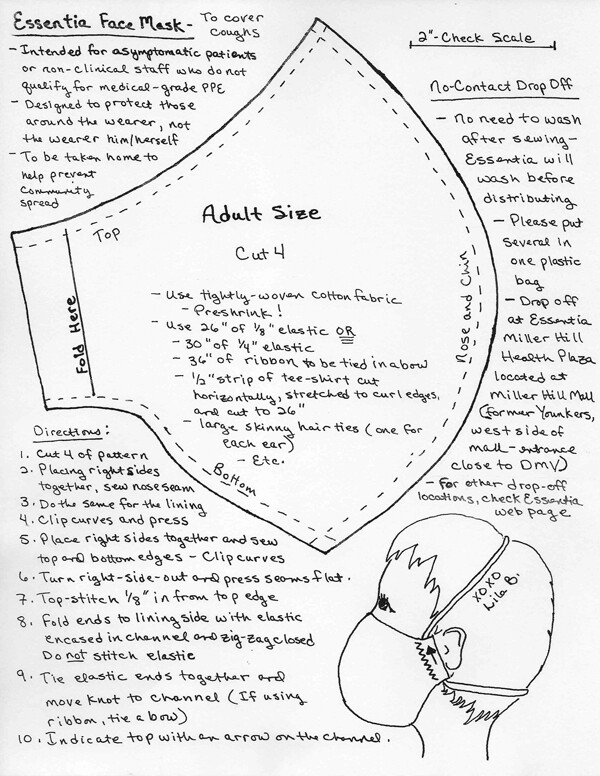
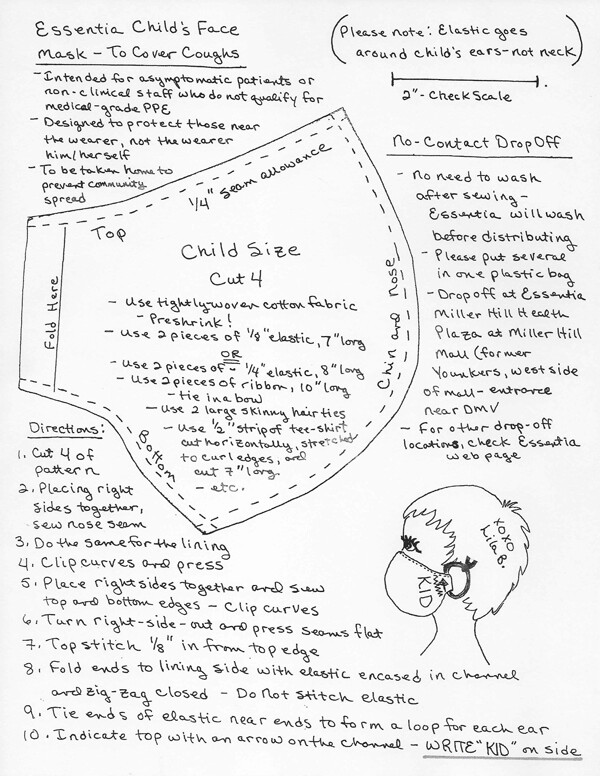
With coronavirus causing chaos around the world, Natalija Walbridge suddenly found her life thrust in an unexpected direction.
Watching news reports about the shortage of personal protection devices for health care workers and others in high risk situations, Natalija decided it was time to clear the decks at her Park Point studio/home, put her business on hold and begin making masks that are so desperately needed.
“Up until a week or so ago, I was busy sewing and working on new designs for the American Craft Show, which is in St. Paul and was scheduled for April, but, of course, it’s been postponed,” she said.
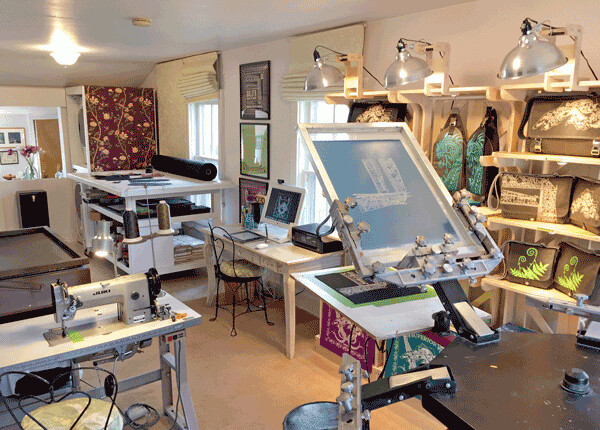
Her business, Dock 5, involves creating artistic, handcrafted canvas bags and cotton bandanas – what she calls “functional fashion” – so she thought briefly about making fabric masks for those in need during the crisis.
“The recommendations were that homemade masks weren’t going to be useful,” she said. “Then the CDC updated their website to say that even a plain bandana is better than nothing. After I got over the shock of that, I realized that I can do better than that. I make bandanas. I have bandana fabric I can sew. I immediately dropped everything I was working on and committed to making masks full-time. My next question was how to make the best mask possible? What can I do to make it as functional as possible?”
That’s when her connections to the area’s art world began to kick in.
“Within hours, I happened to see my friend Lila Boehland post a pattern,” Natalija said. “I know her because we’ve done shows together. She’s a fiber artist.”
Lila’s daughter, Andie, is an emergency doctor in Duluth.
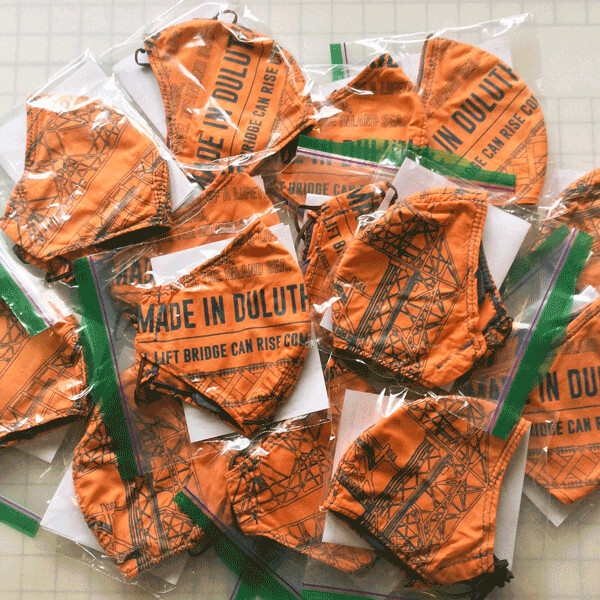
“Because there is a nationwide shortage of surgical masks, she asked me if I could create a pattern for a cloth mask that could be used for non-medical hospital employees and asymptomatic patients who are in the ER waiting room,” Lila said. “Since COVID-19 is spread by droplets, she wanted to contain the droplets before they entered the room. I created the pattern, and after several prototypes, she approved the current version. It was great teamwork!”
“These masks were specifically designed to have a cup shape so they can fit over an N95 mask [the National Institute for Occupational Safety and Health-approved respirator mask],” Natalija said. “A fabric mask alone is not virus proof, but when used as a cover for an N95 it becomes washable. They can cover a cough, and remind people not to touch their faces. Ideally they can have enough fresh covers to change covers between patients. These covers are incredibly valuable when used that way. The beautiful thing is that the fabrics I use, both for my bandanas and bags are high-quality cotton woven fabric, which is the ideal fabric to be making this type of mask.”
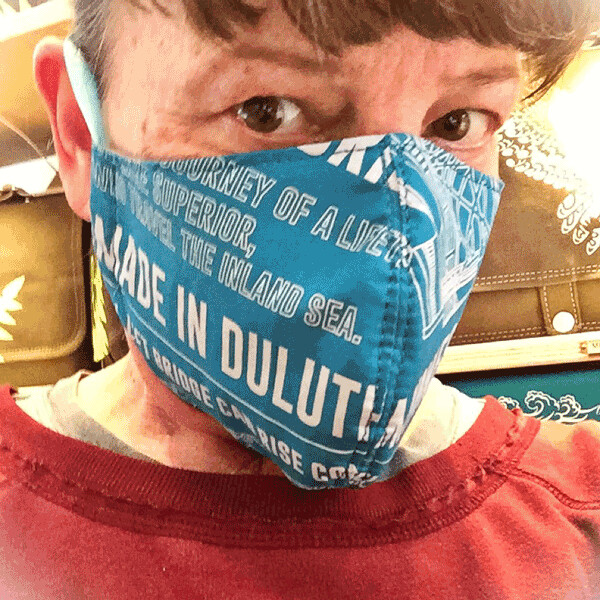
As soon as she put the idea out there via social media, Natalija started hearing from health care workers who desperately needed the masks.
While she had the fabric on hand, she did not have the elastic needed to secure the masks. When she heard from a group who work in an eye surgery clinic, she asked if they could wait until she obtained elastic, at a time when it is in short supply across the country.
“Literally, within 48 hours last week, the whole United States sold out of elastic,” Natalija said. “That group of eye surgery nurses said they needed them fast and could not wait for elastic. They were in such urgent need because none of them have N95s and most of their patients are elderly and they have to be in close contact with them. They needed masks within 24 hours.”
She started sewing, and also put out the word that she needed elastic, including to her brother, Dave Walbridge, a professional performance artist in the Twin Cities who performs under the name Big Fun Show.
“He has a huge network of people and was able to connect me with the UMD theater costume shop director, who donated enough elastic for me to finish that first rush order,” Natalija said. “My neighbor and one of our star volunteers here on Park Point, Diane Gould, who’s my runner, picked up the elastic and also brought me a supply of zip-lock bags and rubber gloves for safe packaging and handling.”
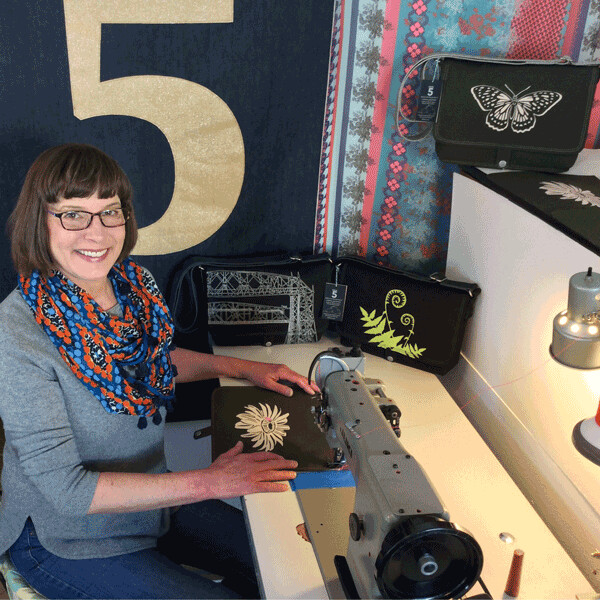
Throughout this strange journey to provide masks, Natalija has been impressed with the collaborative efforts and contributions of her fellow artists.
“One collaboration that has been pivotal, Barb Owen-Boerger, a friend and jewelry artist in International Falls. She reached out to me the first night I was hatching an idea to reprioritize my whole life,” she said. “She reached out to lend some moral support and said she’d be willing to help brainstorm. I took her up on it and called her. One of the first things I asked, do we know each other? No, she said she just been following me on Instagram. She is the one who came up with the idea to maybe find some matching sponsors who would be willing to buy masks and then donate them, particularly to health care workers and people in high-risk situations. That was invaluable.”
Owen-Boerger of Sand Bay Jewelry, International Falls, said Natalija’s efforts represent “the incredible way the creative adapt their gifts to the needs at hand. It is a beautiful reminder that creativity starts in the heart, soul and spirit.”
Natalija also mentions fellow “starving artist” Ann Klefstad, an artist and writer who became one of her first sponsors.
“The reason she could help is somebody just bought one of her paintings, so support your artists,” she said. “It’s all going to trickle down to the right places.”
It is that kind of thinking that has allowed Natalija to put her own business on hold until this need for masks is satisfied. She originally thought of doing some sort of crowdfunding event online to help cover her costs.
“But there’s no time for business as usual,” she said. “The most valuable thing I can do every moment of the day is sewing to save lives. And I’ll try to emerge and survive as an artist when this is over. So many people are offering to help me. I just have complete faith that things are going to balance out in the long run.”
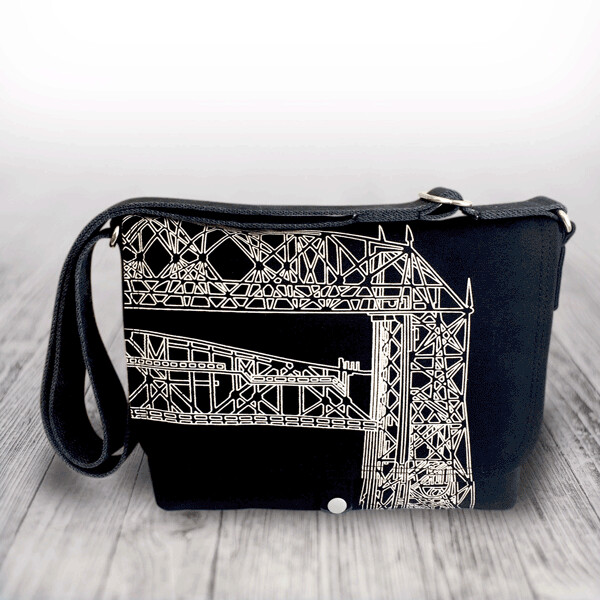
Still, there are ways to help.
1. If you can sew, use the patterns provided and reach to to people in your community who might need face masks. If you needed advice, Natalija suggests you follow her on social media, where she shares sewing tips.
2. If people want to sponsor the mask-making effort by purchasing masks that she can donate to people in high-risk situations, mail checks to Dock 5, 2311 Minnesota Ave., Duluth, MN 55802. “This is not a formal fundraising project,” Natalija said. “I don’t have an end goal. I don’t know how demand will flow, but I’m committed to sewing as long as it takes before I switch back to business as usual. My plan is to keep getting orders out the door as fast as I can.”
3. And, finally, she asks that you support your local artists and farmers, who, she said, are pretty much in the same boat as artists. “Several of my artist friends, myself included, have been applying for unemployment but have been rejected because our income is seasonal and they’re going by quarterly earnings. Same thing with farmers. We don’t make money in spring, but our biggest expense period is in the spring. So we are tapped out but don’t qualify for unemployment. You don’t have to support me. Support anyone whose work you love. Splurge on a painting or on whatever you’ve been wishing for.” She notes that she continues to take orders for her Dock 5 bags and bandanas, “but the bandana supply will be limited and will only last until they are repurposed into masks,” she said. “I’m not concerned. But if people want to find out more about me, take a peep at my website (dock-5.com). My show schedule is on there as well, but who knows if there will be shows in the future?”
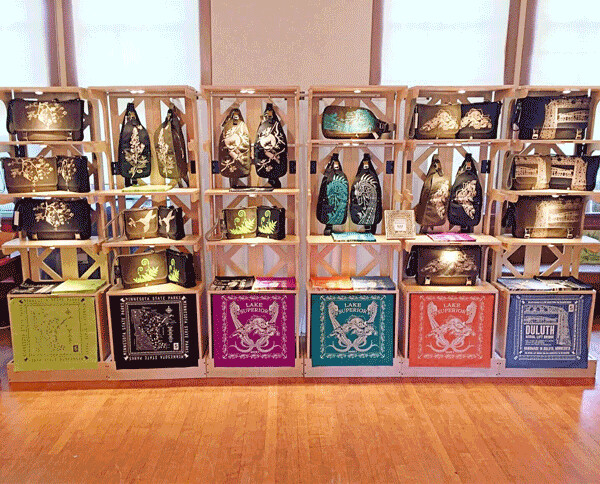
| Tweet |


